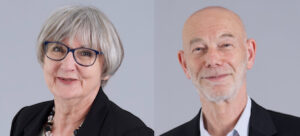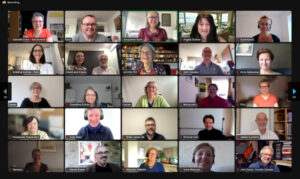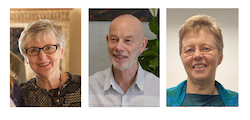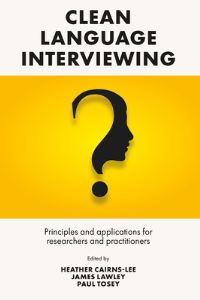Below is my foreword to the just published The NLP Professional
by Karen Moxom (First edition, Ecademy, 2011)
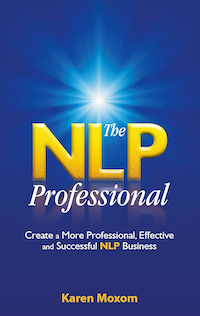 I remember as a young man going for an interview and being asked “What comes to mind when you think of the word ‘professional’?” I was taken aback by the question and mumbled some trite answer. The truth was, I had never thought about it. I wish I had read Karen Moxom’s The NLP Professional before that interview. Not because I knew anything about NLP back then, but because it would have helped me understand what it means to be professional. While this book is aimed at the NLP practitioner, much of it could apply to being professional in any field.
I remember as a young man going for an interview and being asked “What comes to mind when you think of the word ‘professional’?” I was taken aback by the question and mumbled some trite answer. The truth was, I had never thought about it. I wish I had read Karen Moxom’s The NLP Professional before that interview. Not because I knew anything about NLP back then, but because it would have helped me understand what it means to be professional. While this book is aimed at the NLP practitioner, much of it could apply to being professional in any field.
The word ‘professional’ derives from the Latin, profiteri, meaning ‘to declare publicly’. Being professional means recognising what we publicly say and do reflects on who we are. Furthermore, as practitioners of NLP our behaviour reflects on the whole field. In terms of Robert Dilts’ Logical Levels model, the lower levels (Environment, Behaviour and Capability) represent the higher levels (Beliefs and Values, Identity and Larger System). In some quarters NLP is at best mocked and at worst held in contempt. If enough people follow the guidance in this book we can support the efforts of the growing numbers attempting to change those perceptions and make NLP a recognised, credible and respected subject.
I make a distinction between ‘a professional’ – a role – and ‘being professional’ – a process. If Carl Rogers, one of the grandaddies of the human potential movement, had decided to write a book on this subject I guess he would have called it ‘On Becoming Professional’. We don’t become professional by getting a certificate. ‘Becoming’ is an ongoing and developmental process that never completes. We are always en route.
The NLP Professional contains lots of practical tips on how to set up and run a professional business, but for me the heart of the book is how Karen breaks down the complex process of becoming professional into seven easy-to-understand themes.
Karen says that integrity and trust are the two most important values that guide professionalism.
Integrity has two meanings: being honest and acting from moral principles; it also means whole and coherent. Integrity is not something we can have in one sphere of our life and not another, it’s not something we can do some of the time. In my experience, integrity needs to be demonstrated consistently because opportunities to cut corners, over-sell, be “economical with the truth”, manipulate, turn a blind eye, etc. are ever present.
The other important value, trust, has a counterpart – trustworthy. Being professional means being worthy of trust. Over the last twenty years, many of my clients have said they want to trust more; never has a client said they want to be more trustworthy. Now why is that? I suspect a ‘cognitive bias’ is involved. My guess is that like many other ‘self-serving biases’ most people would consider them self above average when it comes to trustworthiness – which of course is statistically impossible. Tellingly, when people hear about self-serving bias they often smile and remark that they know others who have that problem!
There are two ways to counter such a bias, and both of them depend on recognising that we might have a bias and not know it. We can either honestly re-evaluate our own behaviour and intentions (in 12-Step Programs this is known as “a searching and fearless moral inventory of ourselves”); or we can seek feedback from people we admire. I recommend doing both. What we do with the information is what counts – not just in the short-term flush of feeling free, but in the months, years and decades that follow.
If we combine integrity and trustworthiness we get the impeccability that Carlos Castaneda acquired from the teachings of shaman don Juan Matus. Being professional means delivering quality service and performance – even when we are not at our best, or the situation is not making it easy. Finding a way to be as prepared as we can and then giving our best, whatever the circumstance, is a hallmark of professionalism.
By establishing ANLP International as a community interest company with its multitude of services, magazines and journals, and by writing this book, Karen is not only demonstrating her professional credentials, she is helping others to do the same.
James Lawley
London
July 2011


